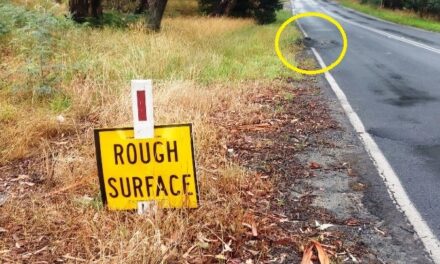Local government elections in 2020 were held during a time of restrictions on public gatherings as a result of COVID regulations. This reduced opportunities for electors to meet candidates and learn about their election policies and platforms. The problem was accentuated in regional Victoria because of the collapse of many local and regional newspapers.
Most candidates turned to social media as the main avenue for their messages. Local activist group, Community Voice, launched a website and a Facebook page to promote candidates who were aligned with their “democratic renewal” initiative. Local Facebook pages, The Daylesford Grapevine and The Chronic, were used frequently by candidates who also established and promoted their own pages. The Wombat Post did not take political advertising but organised an all candidates forum which was live-streamed to their Facebook page.
The pandemic fuelled a huge increase in reliance on social media during 2020 but there were worldwide concerns about the distribution of misinformation in this unregulated environment. There were particular concerns about the use of social media by some US Presidential candidates who spread misinformation, fake news and even encouraged insurrection. Social media platforms started to respond by identifying, tagging and deleting some posts and banning some users.
The use of social media by local government candidates resulted in a huge uptick in complaints to the Local Government Inspectorate which has oversight over local councils, councillors and local government elections.
“The council election period is generally a vibrant time for local government in Victoria but the pandemic and the resulting restrictions on movement created unprecedented conditions that impacted candidates, election officials and the Inspectorate staff,” said Chief Municipal Inspector, Michael Stefanovic AM. “Long-time councillors reported to us that this was the most toxic and vitriolic election that they had ever experienced. In addition, we saw numerous examples of unethical and underhand behaviour.”
The Local Government Inspectorate’s comprehensive report, Social media fuels rise in complaints during 2020 council elections, released this week, details the numbers and trends of complaints received before, during and after the election period.
Complaints to the Local Government Inspectorate about council elections in 2020 more than doubled compared to the previous general elections, with 848 formal complaints in 2020 compared to 409 in 2016.
The Inspectorate averages 500 formal complaints a year but this rises to about 36 a day during the election period, about which they issued 139 warnings and provided advice or achieved voluntary compliance in 23 cases.
A third of all complaints were related to social media usage by candidates, community members and ratepayer groups. Social media complaints tripled, rising from 78 complaints in 2016 to 266 last year.
A total of 639 complaints were from candidates lodging complaints against other candidates, while 67 complaints were about organised groups, such as ratepayer associations and community groups.
Mr Stefanovic said: “Our report makes eight recommendations to improve the transparency, accountability and integrity of the council election process. This includes the recommendation to amend the Local Government Act 2020 to encompass social media or online activity in relation to electoral material and campaigning.”
The busy period for the Local Government Inspectorate may be a factor in the long delayed release of their report into The Rex.





